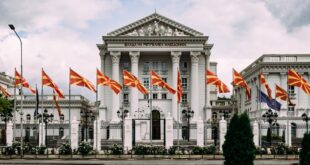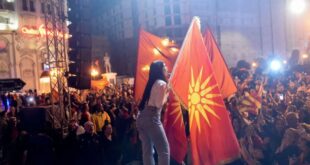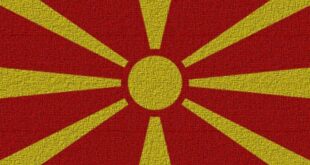 Opinion polls in Macedonia suggest that Georgi Ivanov of the ruling VMRO-DPMNE will defeat his rival, Ljubomir Frckovski, in the country’s April 5 presidential elections.
Opinion polls in Macedonia suggest that Georgi Ivanov of the ruling VMRO-DPMNE will defeat his rival, Ljubomir Frckovski, in the country’s April 5 presidential elections.
A poll by the Democratic Institute found that 25 percent of voters would support Ivanov while 15 percent would vote for Frckoski.
The poll also found that 45 percent of citizens do not intend to vote in the second round of the presidential elections on April 5, while a further 15 percent are undecided. This brings into question whether a quorum of 40 percent of the electorate will be achieved.
The VMRO-DPMNE leader, Prime Minister Nikola Gruevski, today convened the latest in a series of meetings of political leaders designed to prevent the elections being marred by a repeat of the violence that took place during the June 2008 parliamentary elections.
The first round of the presidential elections on March 22 passed off without any serious violence but the opposition social democrat SDSM, for which Frckovski is the presidential candidate, alleged that the ruling party exploited state institutions during the campaign.
Ivanov and Frckovski have taken part in a television debate but this does not seem to have had a significant impact on their respective support.
Although in the first round Ivanov won about 440,000 votes, double the number for Frckoski, observers believe the crucial factor in the runoff will be the 300,000 voters who endorsed Selmani and Boskoski. The two runners-up have said they will not back either candidate in the second round or advise their supporters whom to vote for.
This leaves VMRO counting on a deal with its government partner, the ethnic Albanian Democratic Union for Integration, DUI, whose candidate Agron Buxhaku won about 70,000 votes in the first round.
The Social Democrats are trying to forge a common front against Ivanov, arguing that all the candidates except Ivanov envisaged a clear NATO and EU path for the country. They have painted Ivanov as an exponent of the government’s “isolationist policy” which refuses to engage seriously in resolving the row with Greece over Macedonia’s name. This dispute has emerged as the biggest obstacle to the country’s effort to secure NATO and EU membership.
 Eurasia Press & News
Eurasia Press & News



